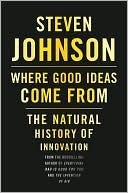Scholars, amateur scientists, aspiring men of letters—just about anyone with intellectual ambition in the seventeenth and eighteenth centuries was likely to keep a commonplace book. The great minds of the period—Milton, Bacon, Locke—were zealous believers in the memory-enhancing powers of the commonplace book. In its most customary form, “commonplacing,” as it was called, involved transcribing interesting or inspirational passages from one’s reading, assembling a personalized encyclopedia of quotations. There is a distinct self-help quality to the early descriptions of commonplacing’s virtues:
...more
Welcome back. Just a moment while we sign you in to your Goodreads account.


